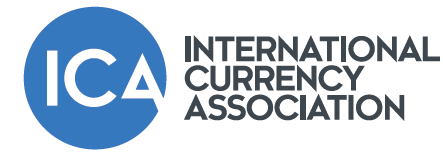By Wolfram Seidemann, Chairman, International Currency Association
Since the beginning of the pandemic, we – as a society and especially as a sector producing banknotes and coins for central banks around the world – have seen a steady flow of disinformation around the role cash may play in spreading Covid-19. Let me start with a simple fact: cash is as safe a payment method as cashless payments. The World Health Organization has underlined that cash presents no particular risk. Germany’s leading public research body working on disease control, the Robert Koch Institute, has said that banknotes have no significance in viral transmission.
So have the European Central Bank, the Bank of International Settlements, the Reserve Bank of New Zealand, the Bank of Canada, the South African Reserve Bank and countless other central banks.
So why are we talking about this again? Because Australian agency CSIRO has published a new study that has made waves – suggesting that the coronavirus can live on many surfaces, including cash, for significantly longer than initially assumed. This paper has been picked up by top-tier media outlets around the world. But what does it actually say?
First of all, the study reminds us that Covid-19 is thought to be primarily spread via respiratory droplets, remaining infectious in airborne particles for over three hours. While guidance differs across countries, the first piece of advice is that we should all respect social distancing where possible, wear masks around others, and avoid crowded indoor settings wherever we can.
Secondly, banknotes have been singled out in the headline of many articles about this scientific paper, but the study has drawn similar conclusions about other surfaces – from doorknobs to mobile phone screens.
Third, there is nothing wrong with the study, but it was carried out with a high load of virus and in the dark (as UV light is thought to help kill the virus). What can we conclude from this – that if you sneeze into a banknote and then keep it in the dark, the virus may survive on it for longer?
Fourth, and most importantly, the virus was detectable on every surface, but detectable does not mean “likely to spread COVID19.”
Let us be clear. We should be washing our hands, or using hand gel when a sink and soap are not available, as often as we can. However, it is important to note that when we go shopping, we touch a number of other surfaces as well: products, carts or baskets, doorknobs, counters – and touchscreens, for the many of us who use self-check out machines at stores. The guidance is clear: after doing a shop, we should wash our hands, whatever we have used to pay for our groceries.
It is great that each study that comes out teaches us more about how to live with this virus. What is not new, but still not encouraging, is that the way scientific papers and discoveries are covered is often simplistic and misleading.
Cash is safe. We have known this, and we have said this, from the very beginning. Marginalizing its use by suggesting it should be avoided hurts those who rely on it the most, like low-income families, the visually impaired, the elderly, migrant communities, victims of domestic abuse and others. But ultimately a move away from cash hurts us all, because cash is a public good that is so intrinsically tied to personal freedom that the right to use it must be protected. We have been heartened by some central banks – the Banque de France is an excellent example – who have wholeheartedly defended the right to use cash through this pandemic. We hope that in the face of continued misinformation, more will join them.
Contact
Jutta Buyse, Director General, International Currency Association
jutta.buyse@currencyassociation.org
About the International Currency Association
Note Printing Australia is a member of the International Currency Association (ICA), which exists to create a coherent voice for the currency industry – covering design, production, manufacturing and distribution. The ICA is the first industry body of its kind with membership made up of businesses that span the sector.
https://currencyassociation.org/


